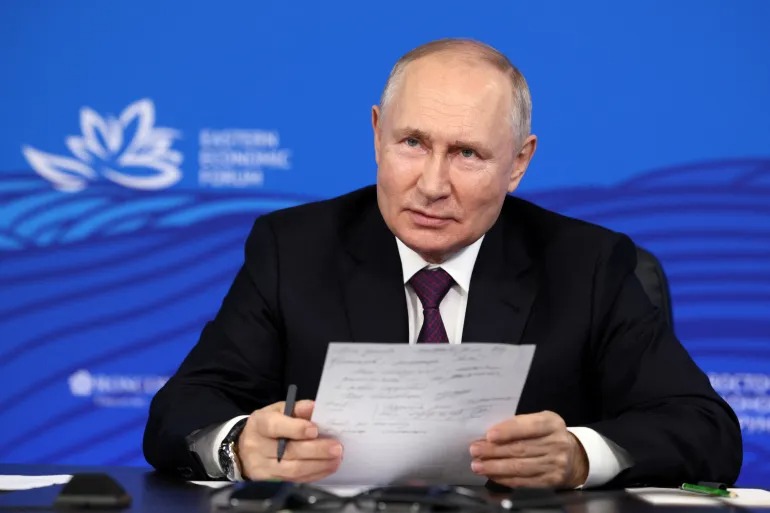In a surprising turn of events, Russian President Vladimir Putin has publicly praised tech magnate Elon Musk as an “outstanding” individual and entrepreneur, lauding his SpaceX company’s remarkable achievements in the space transportation sector. Putin’s endorsement comes just days after Musk revealed that he had declined a Ukrainian request to activate his Starlink satellite communication network in the Russian-annexed Crimean port city of Sevastopol, igniting a fierce debate over his stance on global politics and war.
Putin Praises Musk’s Brilliance
At an economic forum held in Russia’s Far East, President Putin did not directly address the Starlink controversy but showered Musk with admiration for his entrepreneurial prowess. Putin acknowledged Musk’s role in revolutionizing space exploration and transportation, noting, “As far as private business and Elon Musk is concerned… he is undoubtedly an outstanding person. This must be recognized, and I think it is recognized all over the world.”
Putin further emphasized Musk’s acumen as an active and talented businessman who has achieved remarkable success, often with the support of the American state. The Russian leader’s endorsement of Musk’s accomplishments is a significant departure from the recent geopolitical tensions involving Musk’s technology.
The Ukrainian Backlash and US Concerns
Musk’s fame, particularly as the CEO of SpaceX and Tesla, has catapulted him into the international spotlight. However, it was his recent revelation regarding Ukraine and the Starlink network that generated controversy. Musk disclosed that he had rejected a Ukrainian plea last year to activate Starlink in Sevastopol, expressing concerns about being complicit in a “major” act of war. The request was purportedly aimed at aiding an attack on Russia’s Black Sea fleet, based in the strategically vital Crimean Peninsula.
This revelation has drawn both criticism and support. Ukrainian officials have decried Musk’s decision, while US Democratic Party Senator Elizabeth Warren has called for a congressional investigation into his actions. Warren expressed concerns about foreign policy being influenced by a single billionaire and questioned whether adequate mechanisms were in place to ensure government oversight.
Musk’s Moral Dilemma: Averting War or Complicity?
Musk’s SpaceX had previously secured a contract with the US Department of Defense to provide Starlink satellite communication services to Ukraine, a move that seemed aimed at bolstering Ukraine’s defense capabilities. However, Musk’s refusal to activate Starlink in Sevastopol raised ethical questions about the responsibilities of private entities in global conflicts.
In a post on his social media platform X, Musk clarified his decision, stating that had he accepted Ukraine’s request, it would have amounted to SpaceX’s complicity in a significant act of war and conflict escalation. While Musk did not specify the date of the Ukrainian request, he detailed the request’s intent: “The obvious intent being to sink most of the Russian fleet at anchor.”
The Starlink controversy has ignited discussions about the complex interplay between private enterprise, international politics, and the potential ramifications of a tech mogul’s decisions. With Musk’s actions under scrutiny, the world watches closely to see how these developments will impact the ongoing geopolitical landscape.
















